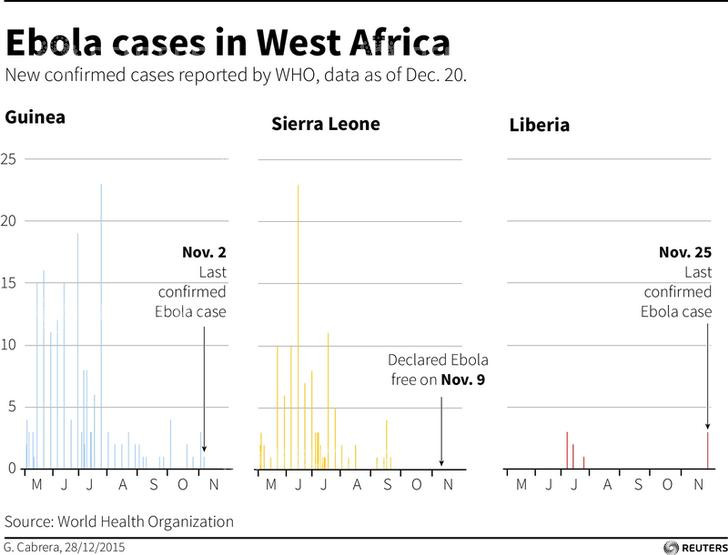Guinea is Ebola-free says WHO

Two years after the Ebola epidemic began in Guinea, the country has finally been given a clean status by the World Health Organization (WHO). To celebrate the news, the African country would hold concerts.
More than 2,500 people perished to the disease over two years in Guinea. WHO is a statement by doctor Mohamed Belhocine said, "WHO commends the Government of Guinea and its people on the significant achievement of ending its Ebola outbreak."
Despite the landmark having been achieved, health workers in the country were cautioned by WHO to remain vigilant in the future. "We have to be very careful, because even if open transmission has been stopped, the disease has not been totally defeated," said a health worker and Ebola survivor, Alpha Seny Souhmah.
Guinea is now believed to enter a 90 day period of "heightened surveillance" to ensure that if any new cases of the virus are seen, then they can be immediately identified and contained from spreading to the wider public.
Dr Bruce Aylward from WHO's Ebola response team claimed: "The coming months will be absolutely critical. This is the period when the countries need to be sure that they are fully prepared to prevent, detect and respond to any new cases."
Guinea is believed to have seen lesser Ebola cases and deaths in comparison to neighbouring Liberia and Sierra Leone. Both the countries were declared Ebola-free in September and November respectively. However, some new cases of Ebola have been reported since then in Liberia.
To determine whether a country is free of the virus, an incubation period of 21 days needs to be passed, during which time no new cases should arise. The incubation period commences once the last known case of the virus has been tested negative for the second time.
© Copyright IBTimes 2025. All rights reserved.






















